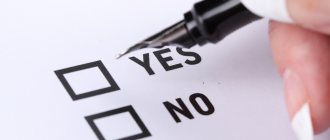This assessment method is becoming increasingly widespread. It is used not only by intelligence agencies, but also by employers when selecting candidates for vacant positions. Many people are afraid of this procedure. We would like to assure you that it is quite possible to pass a polygraph test without unnecessary problems. This will require some preparation, acting skills and the ability to control the reactions of your body will come in handy. The ability to abstract and switch thoughts can help.
But you should be careful with chemical and pharmacological agents. There is a possibility of harming your health and creating a bad impression.
What is a polygraph and how to pass it
Some people have the misconception that it is very easy to fool a lie detector. This begs the question: why is it needed then? But it's not that simple.
Indeed, it is quite possible to complete the test without noticeable biophysical changes (we wrote about the specific history of polygraph deception earlier), but the fact is that for the first twenty minutes you will be asked “calibration” questions, setting up the device individually for you.
So, the same reaction to all questions asked by a specialist, of course, will not harm you, but it will not help you either. Moreover, the test results may be canceled and a new one assigned. The whole secret is not to keep all emotions under control, but to show the desired reaction to the question at a certain moment.
Moreover, this must be done in such a way that the polygraph examiner does not become wary.
We offer for viewing a short video about taking a polygraph test in modern realities.
Lie detector: how to successfully pass the test. Practical recommendations for subjects
In recent years, lie detector or polygraph testing has been increasingly used in Russia.
Many departmental and commercial organizations use this method when hiring employees, recertifying them, and conducting internal investigations.
In private life, lie detectors are increasingly used to identify facts of adultery, when selecting household staff and screening adolescents over 14 years of age in order to identify risk factors such as drug use, alcohol, participation in socially disapproved actions, etc.
A brief history of the lie detection method in Russia
Film “How Lies Became a Global System of Interaction”
TV Day. Key element. Narrated by Sergey Savelyev, Doctor of Biological Sciences
The lie detector, or more precisely the Special Psychophysiological Study (SPFI) using a polygraph, has recently become widespread. The first freely available polygraphs appeared in Russia in the early 90s, already in the last century. Although for the first time the method of identifying hidden information in our country arose in the 20s of the last century, when the Soviet psychologist, founder of Russian neuropsychology, Professor Alexander Romanovich Luria, supplemented the well-known method of free association with a special device - a monograph, which objectively recorded motor the subject’s reaction to an external stimulus or, more simply, a question.
Unfortunately, in the early 30s, these experiments, like many other psychological studies in the USSR, were stopped or, more precisely, prohibited by a decision of the party leadership. And the scientific base developed by Russian scientists continued to develop in the USA, where it received practical application in the investigation of criminal crimes.
The revival of methods for identifying hidden information in the USSR began in 1975, when, on the initiative of the Chairman of the KGB of the USSR Yu.V. Andropov, the 30th laboratory of the KGB of the USSR was created, which in 1994 was transformed into one of the departments of the Institute of Forensic Science of the Center for Special Equipment of the FSB of Russia. With a slight delay and also in an atmosphere of secrecy, psychophysiological studies were carried out in the system of the USSR Ministry of Internal Affairs.
Thus, the development of the psychophysiological method of identifying hidden information, or rather the veil of secrecy behind which this direction developed in Russia, contributed to the fact that applied psychophysiology has become overgrown with an incredible amount of speculation and rumors, turning the lie detector into a monstrous instrument , with the help of which the soul is literally pulled out of a person in order to find in it all earthly vices and sins.
Important information for the subject
Lie detector test as a method of psychodiagnostics
Special Psychophysiological Research using a polygraph is not fundamentally different from other psychological (psychodiagnostic) tests or medical studies, for example, using an electrocardiograph.
A lie detector test, just like any other diagnostic methods, has the following characteristics: standardization, reliability and validity.
The technique has its own area of application, its own specifics and its own limitations, which are characteristic of any method of psychological research.
Important to remember!
A lie detector test is a psychodiagnostic study, the same as measuring temperature with a thermometer or ECG.
Lie Detector Test Safety
Physiologically, the procedure is absolutely safe for the subject. During testing, there is no active effect on the test subject's body. All sensors are passive, i.e. do not have any effect on the body. From a physiological point of view, this study can be compared to measuring body temperature with a conventional medical thermometer.
Psychologically, the procedure can be a source of stress. Before and during testing, all subjects experience anxiety. Those involved are afraid of exposure. Uninvolved in false accusations. Both are afraid that as a result of the research, any socially disapproved actions or intentions that took place in their past will become known. In addition, the questions themselves can cause you to feel indignation, resentment and other unpleasant emotions.
Important to remember!
Physiologically, polygraph examination is safe. Psychologically, this is stress to one degree or another. Be prepared that you may have to experience unpleasant emotions that are typical for every person in a similar situation. Your level of anxiety before the test will be recorded and will not affect your results.
Voluntariness of polygraph examination
Research using a polygraph is carried out only with your voluntary consent. No one can force you to undergo SPFI. Before the start of the study, the polygraph examiner must ask you to sign a Statement or other document indicating your voluntary consent.
You can refuse further testing at any time during the procedure. You are not required to explain the reasons for refusal, either verbally or in writing.
Important to remember!
The research can only be carried out with your voluntary consent.
Lie detector test questions
Before testing, the Customer and the psychophysiologist are required to familiarize you with the topic and questions of the tests.
You can discuss these questions and clarify them. It is important that you and the specialist clearly understand these questions, and that you decide for yourself how you will answer them.
During methodically correct testing, no questions can be asked other than those that have been voiced.
The questions asked may relate not only to the topic being directly investigated, but also to certain aspects of your personality - the level of anxiety, ability to adapt, acceptance of social norms, self-esteem, assessment of the environment, emotionally significant memories, etc. There is no need to be afraid of such questions; they are necessary to obtain an accurate and reliable result.
It is strictly forbidden to ask questions, except in cases where this is due to the topic being studied, for example, checking marital fidelity, regarding:
- Your sexual inclinations.
- Your family and loved ones.
- Your political and religious views.
Important to remember!
There will be no surprise questions on the test. There may be questions that characterize you as a person. There can be no personal questions.
Subject's position during testing
A lie detector test is a psychodiagnostic test, not an interrogation. A good polygraph examiner does not take the position of a prosecutor or lawyer. This is a specialist who conducts a study of the presence in your memory of information about the event under investigation.
If you have nothing to hide on the topic under investigation, then you and the polygraph examiner have a common goal and you are partners helping each other in achieving this goal.
If you are involved, you cannot have a partnership with the polygraph examiner. In this case, you are competitors. Try not to show it. And under no circumstances should you go beyond reasonable limits in competition, forcing a specialist to take retaliatory measures. Remember, a polygraph examiner is also a person and, like any person, is subjective.
In any case, take an active, polite position, ask questions, explain your reactions, remain a Personality.
Important to remember!
The best position during this time is polite, friendly, if possible, a partnership. Interact with a specialist. Don't take the position of a victim.
Position of the polygraph examiner during testing
Unfortunately, as in any other profession, there are different specialists in practical psychophysiology. Moreover, some schools that train polygraph examiners, as well as the methods they develop, have a clearly accusatory bias. Therefore, I recommend paying close attention to the psychological attitude of a polygraph examiner.
Particular attention must be paid to search tests, the questions of which are aimed at clarifying the specific circumstances of the event. Search test questions are formulated as if the polygraph examiner already knows for certain that you committed the event under investigation and the point of the questions is to clarify the details of this event.
A simple example. Question: “Do you drink a glass of vodka every morning? / cognac? / homemade tincture? / moonshine?
If you told the specialist that you drink a glass of alcohol every morning, then this test is completely appropriate. If the fact of daily alcohol consumption has not been proven, then using such tests is unacceptable.
Therefore, if, based on the behavior of the polygraph examiner, the meaning of his statements, questions and other signs, you feel a priori guilty, the best solution for you would be to politely refuse to undergo testing with this particular polygraph examiner and ask the Customer to replace the specialist.
Important to remember!
The position of a good psychophysiologist is always neutral and friendly. If you are faced with an accusatory position, attempts at threats or any other form of pressure, ask to replace the specialist.
Lying during a lie detector test
As I already wrote, there may be questions in tests that you would not want to answer the truth. This is quite natural. And I do not urge you to be frank.
Sometimes telling the truth is a very difficult and responsible decision.
The only thing I want to warn you about is that the technique cannot distinguish a minor lie from a significant one. And it's not because she's imperfect. The reason is that for your psyche there are no such concepts as big lies and little lies, there are only concepts - lies and truth.
Your physiology reacts equally to the theft of candy from your parents' chest of drawers and to the theft of a million dollars from the country's budget. Therefore, in the process of discussing questions with a psychophysiologist, it would be better for everyone to inform him about the nuances that may arise when answering a specific question. This will allow you to make the results reliable and eliminate unnecessary suspicion.
To clarify this important point, I will give a simple example.
Experience shows that many people have tried soft drugs at least once. This does not mean that they used or use them systematically or are addicted to drugs. Let’s say that in your experience there was a single drug use during a trip to Amsterdam. If the tests ask: “Have you used drugs?” and you answer “no”, the device will record a lie.
Therefore, to the question “Did you use drugs?”, I recommend explaining that there was one case during a trip to Amsterdam. This information will allow the polygraph examiner to reformulate the question as follows: “Except for one time in Amsterdam, have you used drugs?” If this really was an isolated incident, then by answering “no” you will tell the truth and the lie detector will record it. If there were other cases that you decided to keep silent about, the answer “no” will be recorded as a lie.
Important to remember!
It is better to inform the specialist in advance about the presence of minor offenses in your past experience related to the topic of testing in order to exclude their influence on the results.
Preparing for a lie detector test
If you have nothing to hide, then
- Rest the night before the test.
- Refrain from drinking alcohol, sedatives and tonic medications, and large doses of tonic drinks.
- There is no need to overeat or, on the contrary, come with a feeling of hunger.
- Avoid drinking large amounts of liquids.
- Reschedule your appointment if you are sick or not feeling well.
Behavior during polygraph testing
First of all, calm down, relax. Sit comfortably. If something bothers you or causes discomfort, immediately report it to a specialist.
Directly during testing, try not to make unnecessary movements. Breathe at your usual rhythm. Look ahead. Answer the questions with a monosyllable “yes” or “no.”
Before answering a question, listen to it to the end and understand its meaning. There is no need to try to analyze the specialist’s behavior and evaluate his reactions to your answers. This may increase your stress level and bias your results.
An interval of 15 seconds to several minutes is required between test questions. Be prepared for pauses between questions.
Attempts to fool the lie detector
Film "Kitchen"
Who went for an interview with a competitor?
There is only one reliable way to fool a lie detector - to refuse the test.
Everything you read on the Internet or heard from your friends is not true.
You can try and maybe you will be lucky - you will be tested by an unscrupulous or illiterate polygraph examiner, unfortunately, there are many of them.
But if you just come across a good specialist, then you have no chance of deceiving him.
Identified attempts to counteract are immediately recorded and become known to the Customer, who will interpret them at his own discretion, usually not in favor of the subject.
Important to remember!
If you have something to hide on the topic of a lie detector test, then the best way is to refuse the study.
In this article, I tried to provide you with the basic information that is necessary for successfully passing a Special Psychophysiological Study using a polygraph or, more simply, a lie detector test.
You can find more complete information on my website at polygraph.club
Sincerely, Psychologist, expert polygraph examiner. Head of the Laboratory of Psychophysiology and Lie Detection. Dmitry Kuzovkov.
We deceive the polygraph
So, you need to evoke inauthentic reactions to simple questions that may generally concern you, and hide these reactions when you need to answer key ones.
- The first is quite simple to do; just take some external irritant - for example, a button in a shoe.
- You can indulge in various thoughts that evoke certain emotions in you.
- Before polygraph testing, you can drink a little alcohol or valerian to calm your nerves ,
- You can stay up all night
- also drink a lot of liquid so that you need to go to the toilet - and the test results will be as expected.
We also recommend reading the article: How to pass a polygraph at the Ministry of Internal Affairs
Control of reactions at the physical level
The equipment simultaneously records different reactions of the body when answering the test:
- blood pressure;
- pulse;
- breath;
- degree of epidermal resistance;
- brain reaction.
Please note: without a person’s consent, no one has the right to force a subject to undergo this type of test. In this case, the circumstances do not matter. Before undergoing testing, management must provide an agreement for signature. If you have doubts or don’t know how and whether to take a polygraph when applying for a job, it is better to refuse.
Several methods on how to get tested:
- To prevent your palms from sweating when answering uncomfortable questions, it is better to lubricate them with alcohol-based gel 40 minutes before the procedure. The products are sold in pharmacies. Experts note that the drug should first be tested, including for the presence of odor.
- Breathing control. It is worth practicing at home on the frequency of inhalation and exhalation. The principle of yogi breathing helps in such training.
- Concentration on an abstract object. Thoughts and pictures should be about neutral subjects. For example, you can recall a photo of a pet. You need to answer after the landscape has been presented. This reduces psycho-emotional tension.
- Mental substitution of questions asked by a specialist. After adjusting the topic, you can reply.
- Additional aids in passing the test are alcohol, sedative pills, and blood pressure medications. It is better to take one thing at a time, since abuse can negatively affect your health and raise doubts among a specialist.
Let's turn on artistry
Of course, the best option is high-quality acting according to the Stanislavsky system. The trick is to become so immersed in your lies that you believe them yourself.
Agree, if you believe in a fiction, then for you it is no longer a lie, which means your body will perceive this information as true, and therefore will give the specialist conducting the test the corresponding result.
It goes without saying that for this you simply need to think through all aspects of your deception in advance, so much so that you can discuss this topic for a very long time without inventing the plot along the way, but as if remembering it:
- Add little things into your story, like what the weather was like, what you smelled - just don't overdo it and don't distract from the main topic. If you have already decided to deceive the polygraph with the help of acting, then emotions will definitely not be superfluous, they just need to be changed, turning fear into anger, and repentance into humility.
Probabilities of error in the operation of the polygraph
The developers and supporters of the device are ready to use the equipment in any unclear situation.
For example, they are used in work to identify employees who incorrectly perform their job duties. They also strive to identify violators of discipline. But controversial situations about the reliability of the information received still do not subside. A number of experts rely entirely on the results, while others note only 50% of correct answers. Read also: How to write a complaint to the prosecutor's office?
Myths about the error-free operation of the device are spread by those who are comfortable with people’s fear of testing. Another category of such persons are companies providing similar services.
In many states, device readings are not accepted as evidence in court. However, if the management uses this approach for an interview or inspection, then it trusts the results. It is inappropriate to engage in conflict about efficiency or errors. Applicants or employees should weigh the pros and cons of the test. Upon making a decision, sign the consent. In case of dismissal or refusal of employment on the basis of refusal to take a polygraph test, you must file a complaint with the labor inspectorate.
Physiology
Now let's move on to blood pressure, which also needs to be controlled.
There are two ways to do this:
- contraction of the sphincter muscles,
- biting the tip of the tongue.
Just remember that you need to do this without any additional facial expressions that could give you away.
Also, control your breathing - under normal conditions, we inhale no more than once every 2-4 seconds. And it’s better not to delay it - there is a risk of increased heart rate.
How to behave during an inspection
While taking the test, you need to concentrate and not be nervous. You can’t fuss, because additional questions from the polygraph examiner will bring an imbalance to the emotional background. It is necessary to listen carefully to each question and answer clearly, without doubt. If a person finds it difficult to answer, then it is necessary to tell a specialist about it. Each answer is given 10 seconds, so you don’t have to rush. You only need to answer “Yes” or “No”.
Secret No. 1
Updated:
There is a long-standing myth that it is possible to fool a lie detector using a pushpin.
The essence of the deception is this:
- Place a thumbtack inside your shoe under your foot.
- When you are asked a security question, for example, “What is your name?”, answer and step on the button.
- Pain causes a slight surge of emotions and is reflected in the detector readings as if you were telling a lie. Thus, when telling a real lie, the readings on the device will be the same or similar, and it will seem that you are telling the truth. Those. sensors will react to a lie in the same way as to a question about your name.
- The polygraph examiner does not notice anything strange in the almost identical polygraph readings and gives you a positive resolution.
The whole catch is that many testing companies currently check the subject for such “pranks” before the test, including checking shoes. Thus, at the moment this method of passing a polygraph test can be considered almost inapplicable. We do not recommend checking!
Mistakes of applicants
It is a mistake to believe that complete calm and lack of reaction during the test is the ideal solution, just like taking a polygraph when applying for a job. There is a possibility that the specialist will doubt the results and the answers will simply not be counted. At the same time, the company’s management may suspect that the subject has secrets.
A hangover or intoxication will affect the functions of the equipment. However, this type of behavior from an applicant or employee can negatively impact a person's reputation. Most likely, the inspection will be postponed to another day.
An alcohol-dependent employee is even worse for a company than someone who tells a lie.
Is it worth it?
We can conclude that successfully passing a lie detector test is not entirely easy, but it is quite possible; you only need a sincere desire and patience.
But the answer to the question of whether this is worth doing, each person must give to himself. One thing is true in any case: if you have made a firm decision to successfully pass the test and deceive the polygraph, then try to do it efficiently, otherwise serious problems and long discussions about what exactly you wanted to hide cannot be avoided.
Tsygvintseva Anastasia · Apr 01, 2021
How to achieve automation
As already mentioned, a detached, calm state will help to deceive the polygraph - when a person does not try to form mental images of life situations in his mind. But it’s quite difficult to completely detach yourself and give negative and positive answers in a timely manner, alternating them correctly. Only a few truly succeed in this.
How to achieve the desired state? Try to mentally switch to any other problem that is relevant to you. In this way, you seem to isolate yourself from the questions being asked; accordingly, you do not analyze them and do not imagine images of situations that are critical for you.
How to properly prepare for polygraph testing?
- before the test, get some sleep, read your favorite book or watch a good movie, this will lift your mood and distract you from “bad” thoughts;
- Before the test, make sure that you feel comfortable - eat on time, wear comfortable clothes. A good state of the body will ensure the most accurate physiological reactions. Do not exclude anything from your usual routine, for example, if you go for a run or drink coffee every morning - do not give up this on the day of the test, since the body is already accustomed to these conditions;
- Don’t overload your thoughts with overthinking and trying to predict test questions. This can lead to unnecessary self-judgment and unnecessary worry;
- You should not view so-called “anti-polygraph” sites on the Internet. The information presented on them is replete with false and distorted facts, and can even lead to panic.
Is it possible to take a sedative before a polygraph?
Many people are interested in what pills to take before a polygraph and whether it is possible to take sedatives. Any medications should be taken only if they have been prescribed by a doctor. A common misconception is that you can drink valerian before a polygraph, and then the test will not show excitement, and, therefore, a lie. In fact, this is completely wrong; taking medications will not change the test results, and excessive use of antidepressants will completely distort the results. Therefore, it is better to immediately inform the expert about your existing diseases and medications that you are taking in accordance with your doctor’s prescriptions.
Thus, taking any medications, as well as alcohol, is something that should never be done before a polygraph.
Recommended:
- Wear clothing with thin sleeves or sleeveless to make it comfortable to put on the blood pressure cuff.
- Get some sleep. If there is a lack of sleep, there will be a tense, nervous state, which will prevent you from going through the study more calmly. If you have had very little sleep (less than 3-4 hours), cancel the test by writing to a specialist, if you have a phone number, or to your manager on WhatsApp (Tatyana Alfeeva).
- Take medications if they are prescribed by a doctor, for example, to normalize blood pressure, or in case of a headache or toothache, take the pills calmly: you should not feel physical discomfort during the test. If necessary, take medications with you;
- You can drink coffee and tea in the amount you are accustomed to;
Methods of counteraction
Now on the Internet there is a huge amount of “tips” to counteract the polygraph. As a rule, they can be divided into several subgroups:
Physiological (like a button in a shoe). People giving such advice do not take into account that modern polygraphs have several motion sensors, including those that read facial muscle movements. By imitating a reaction, you show that you are guilty. Do you need this - think for yourself.
Pharmacological (eat valerian or other sedatives). In order for the device to stop reading reactions, you need to take a lot of medicine, and this will be noticeable to the naked eye. In addition, consuming sedatives in large quantities is life-threatening!!! The same situation applies to alcohol consumption.
Mental (meditate, read poetry to yourself, etc.) For this to work, it takes months of hard training and a mentor. As you understand, no one-week course will teach you this, but if you do it on your own, a specialist will figure out your idea in one go.











